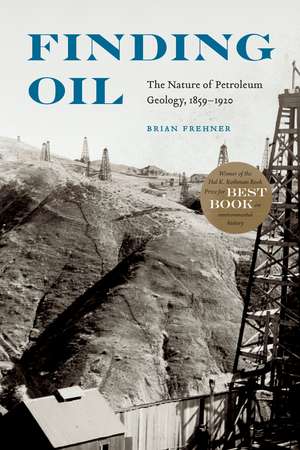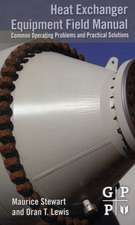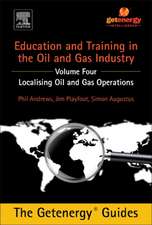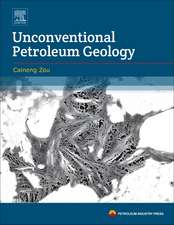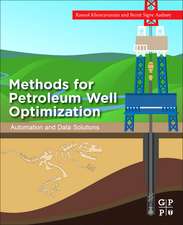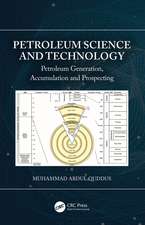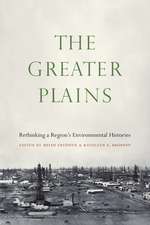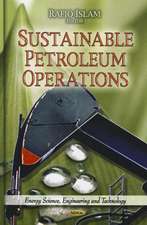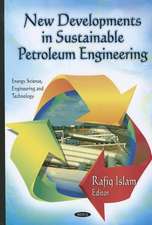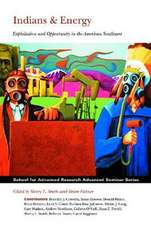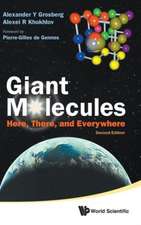Finding Oil: The Nature of Petroleum Geology, 1859-1920
Autor Brian Frehneren Limba Engleză Paperback – dec 2016
Published in Cooperation with the William P. Clements Center for Southwest Studies, Southern Methodist University.
Because oil has made fortunes, caused wars, and shaped nations, no one questions the assertion that the quest for oil is a quest for power. The question we should ask, Finding Oil suggests, is rather what kind of power prospectors have wanted. This book revises oil’s early history by exploring the incredibly varied stories of the men who pitted themselves against nature to unleash the power of oil.
Brian Frehner shows how, despite the towering presence of a figure like John D. Rockefeller as a quintessential “oil man,” prospectors were a diverse lot who saw themselves, their interests, and their relationships with nature in profoundly different ways. He traces their various pursuits of power from 1859 to 1920 as a struggle for cultural, intellectual, and professional authority over both nature and their peers. Charting the intersection between human and natural history, their stories trace the ever-evolving relationship between science and industry and reveal the unexpected role geology played in shaping our understanding of the history of oil.
Because oil has made fortunes, caused wars, and shaped nations, no one questions the assertion that the quest for oil is a quest for power. The question we should ask, Finding Oil suggests, is rather what kind of power prospectors have wanted. This book revises oil’s early history by exploring the incredibly varied stories of the men who pitted themselves against nature to unleash the power of oil.
Brian Frehner shows how, despite the towering presence of a figure like John D. Rockefeller as a quintessential “oil man,” prospectors were a diverse lot who saw themselves, their interests, and their relationships with nature in profoundly different ways. He traces their various pursuits of power from 1859 to 1920 as a struggle for cultural, intellectual, and professional authority over both nature and their peers. Charting the intersection between human and natural history, their stories trace the ever-evolving relationship between science and industry and reveal the unexpected role geology played in shaping our understanding of the history of oil.
| Toate formatele și edițiile | Preț | Express |
|---|---|---|
| Paperback (1) | 174.68 lei 6-8 săpt. | |
| Nebraska – dec 2016 | 174.68 lei 6-8 săpt. | |
| Hardback (1) | 356.55 lei 3-5 săpt. | |
| Nebraska – oct 2011 | 356.55 lei 3-5 săpt. |
Preț: 174.68 lei
Nou
Puncte Express: 262
Preț estimativ în valută:
33.42€ • 34.90$ • 27.60£
33.42€ • 34.90$ • 27.60£
Carte tipărită la comandă
Livrare economică 16-30 aprilie
Preluare comenzi: 021 569.72.76
Specificații
ISBN-13: 9780803290624
ISBN-10: 0803290624
Pagini: 248
Ilustrații: 30 photographs, 4 illustrations
Dimensiuni: 152 x 229 x 18 mm
Greutate: 0.2 kg
Editura: Nebraska
Colecția University of Nebraska Press
Locul publicării:United States
ISBN-10: 0803290624
Pagini: 248
Ilustrații: 30 photographs, 4 illustrations
Dimensiuni: 152 x 229 x 18 mm
Greutate: 0.2 kg
Editura: Nebraska
Colecția University of Nebraska Press
Locul publicării:United States
Notă biografică
Brian Frehner is an associate professor of history at Oklahoma State University. He is the coeditor of Indians and Energy: Exploitation and Opportunity in the American Southwest.
Cuprins
List of Illustrations
Acknowledgments
Introduction
Part 1. Local Knowledge
1. Vernacular Authority in the Oil Field
2. Collaborative Authority: Nineteenth-Century Foundations of Petroleum Geology
Part 2. Contested Knowledge
3. Shared Authority: Practical Oil Men and Professional Geologists
4. Institutional Authority: Field Work, Universities, and Surveys
Part 3. Appropriated Knowledge
5. Geology Organized: Henry L. Doherty's Technological System
Conclusion
Notes
Bibliography
Index
Acknowledgments
Introduction
Part 1. Local Knowledge
1. Vernacular Authority in the Oil Field
2. Collaborative Authority: Nineteenth-Century Foundations of Petroleum Geology
Part 2. Contested Knowledge
3. Shared Authority: Practical Oil Men and Professional Geologists
4. Institutional Authority: Field Work, Universities, and Surveys
Part 3. Appropriated Knowledge
5. Geology Organized: Henry L. Doherty's Technological System
Conclusion
Notes
Bibliography
Index
Recenzii
"[Finding Oil] expands considerably our understanding of oil development in the southern plains."—Brian C. Black, Journal of Southern History
"As oil became more difficult, more expensive, and riskier to find, investments in the training and employment of professional geologists made economic sense to practical oil men bent on creating global scientific knowledge of the best places to explore. Finding Oil is an excellent introduction to this fascinating history."—Joseph A. Pratt, Journal of American History
"Approachable and well-written."—Jordan P. Howell, Journal of Historical Geography
"Frehner has found a story worth telling and has told it well."—John W. Stockwell Jr., Leading Edge
"Finding Oil deserves a secure place on the bookshelves of oil history scholars and buffs. But it should also appeal to anyone interested in the history of the natural sciences, the relationship between nature and culture, and the intersections between business, technology, and the environment."—Tyler Priest, Annals of Wyoming
"Effectively illustrated and thoroughly footnoted, with an extensive bibliography and a complete index, the book provides an intelligent readership with an appreciation for the temporal and technical aspects of early petroleum geology."—W. C. Peters, CHOICE
